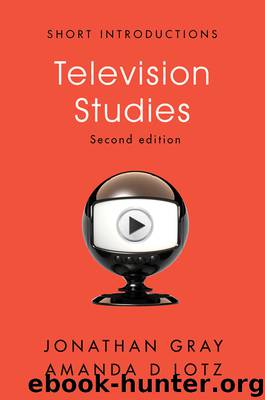Television Studies by Jonathan Gray & Amanda D. Lotz

Author:Jonathan Gray & Amanda D. Lotz
Language: eng
Format: epub
Publisher: Wiley
Published: 2018-02-03T16:00:00+00:00
The ritual uses of television
Several other lines of – at times – starkly different audience research stem in part from the work of Roger Silverstone, a key name in British media and television studies whose work at Brunel University, the University of Sussex, and the London School of Economics helped to make all three schools centers for the study of media in the UK. Much of Silverstone's more famous work was theoretical, not empirical, but his continuing legacy is seen in an interest in the role of ritual in media, and in the ways in which audiences and the media alike structure the relations between each other.89 Silverstone wrote poetically of television as the primary storyteller and mythmaker of our current era and was interested in audiences’ ritual uses for such stories and myths. Television, he noted, “accompanies us as we wake up, as we breakfast, as we have our tea and as we drink in bars. It comforts us when we are alone. It helps us sleep. It gives us pleasure, it bores us and sometimes it challenges us. It provides us with opportunities to be both sociable and solitary.”90 It is not simply something we look at when bored, but something that serves a whole range of quite intimate ritual purposes in our lives; or, rather, its many stories and genres serve such roles.
To make sense of some of these roles, Silverstone drew on sociologist Anthony Giddens's writings on “ontological security.”91 Giddens observed that contemporary society is replete with risk – as you read this, for instance, a gas leak could be threatening your life; a terrorist attack might be seconds away from affecting your city; the financial markets could be imploding, taking your and/or your parents’ savings with them; and so forth. This risk society therefore requires coping mechanisms and requires us to find ways to feel okay, to feel safe. This feeling of safety and comfort is called “ontological security,” or security in one's being. Silverstone regarded television and its stories as key ways by which we establish ontological security, as alluded to in his above-quoted list of waking, beginning the day, having a break, and sleeping with the medium. So, for instance, one might ease out of the hardships of the day by watching a late night talk show, or one might wake up with the idle, upbeat chatter of a morning show. One might find connection to others through watching sitcoms with “people like me” or use the news to otherwise situate oneself in time, space, and a community. Given these multiple ritual uses, television has also taken on a distinctly domestic feel, “a member of the family in a metaphorical sense but also in a literal sense insofar as it is integrated into the daily pattern of domestic social relations, and insofar as it is the focus of emotional or cognitive energy, releasing or containing tension for example, or providing comfort.”92 In the process, television has become central to how many of us
Download
This site does not store any files on its server. We only index and link to content provided by other sites. Please contact the content providers to delete copyright contents if any and email us, we'll remove relevant links or contents immediately.
| Anthropology | Archaeology |
| Philosophy | Politics & Government |
| Social Sciences | Sociology |
| Women's Studies |
Cecilia; Or, Memoirs of an Heiress — Volume 1 by Fanny Burney(32527)
Cecilia; Or, Memoirs of an Heiress — Volume 2 by Fanny Burney(31928)
Cecilia; Or, Memoirs of an Heiress — Volume 3 by Fanny Burney(31916)
The Great Music City by Andrea Baker(31902)
We're Going to Need More Wine by Gabrielle Union(19020)
All the Missing Girls by Megan Miranda(15894)
Pimp by Iceberg Slim(14465)
Bombshells: Glamour Girls of a Lifetime by Sullivan Steve(14039)
For the Love of Europe by Rick Steves(13825)
Talking to Strangers by Malcolm Gladwell(13332)
Norse Mythology by Gaiman Neil(13318)
Fifty Shades Freed by E L James(13216)
Mindhunter: Inside the FBI's Elite Serial Crime Unit by John E. Douglas & Mark Olshaker(9299)
Crazy Rich Asians by Kevin Kwan(9262)
The Lost Art of Listening by Michael P. Nichols(7480)
Enlightenment Now: The Case for Reason, Science, Humanism, and Progress by Steven Pinker(7288)
The Four Agreements by Don Miguel Ruiz(6729)
Bad Blood by John Carreyrou(6601)
Weapons of Math Destruction by Cathy O'Neil(6249)
